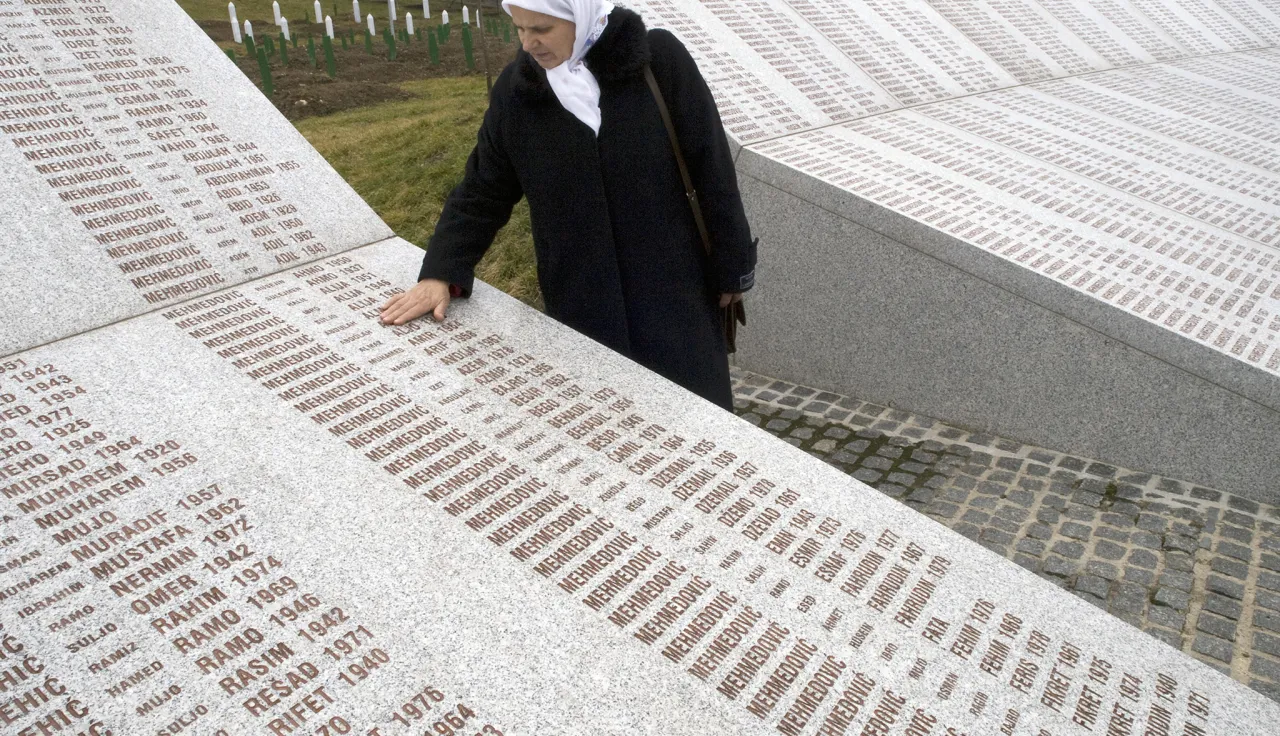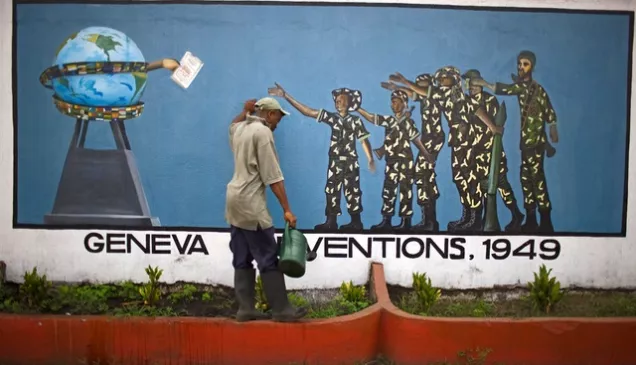Srebrenica 20 years on: Let us not forget

By Dominik Stillhart, director of operations
There is something quietly dreadful about cemeteries in which all the graves are uniform. Absence of variety among the tombstones sends a message to the visitor: something awful happened here.
You sense it at the huge cemetery at Potocari near Srebrenica which, this week, will mark the twentieth anniversary of one of the darkest episodes of the Bosnian War when up to 8,000 people were killed in the hot summer days of July 1995. The International Committee of the Red Cross (ICRC) lost nine members of its own staff at the time.
This year, like every year, a ceremony of mass burial will take place. More than 130 coffins, covered in Islamic green cloth, will be lowered into the ground: the latest victims to be found and identified from a conflict that ended so long ago.
Most of the peacemakers and peacekeepers, the journalists and humanitarians have long since left Bosnia. Other conflicts around the world have grabbed the attention. But the bodies still keep being found. More than 1,000 people still remain unaccounted for at Srebrenica.
Most years, the number of victims buried at the ceremony at Potocari is smaller than the previous year. In 2012, it was 520. In 2013, 409. And in 2014, 175.
This is inevitable. It is relatively easy to make headway in discovering what happened to the missing in the early months and years after a conflict, when witnesses are plentiful and memories are fresh. But the rate of progress cannot be sustained as memories fade and evidence becomes more difficult to find.

Potocari cemetery, Srebrenica, February 2008. Dzidza prays at the grave of one of her brothers. CC BY-NC-ND / ICRC / N. Danziger / v-p-ba-e-00075
The truth is, that the missing from long-ago conflicts cannot hope to compete with the burning emergencies of today: in Syria, in Iraq, in Yemen. So why does it matter that the search goes on for the missing from Srebrenica and the Bosnian War, and the other Balkan conflicts?
We live in a time of instant news, instant impact, instant results. Assiduously combing through archives, painstakingly gathering thousands of witness testimonies and collecting genetic information from families can be dismissed as a fool's errand.
But not forgetting the past does matter. Families have a right to know what happened to their loved ones. Communities paralysed by grief need to have closure to move on and to start the process of reconciliation. We all need to rest in peace.
Nearly three quarters of those who disappeared in the Balkan conflicts of the 1990s have been found and identified. This is a good record - far better than most conflicts. But progress remains slow. Close to 11,000 remain unaccounted for across the region.
The ICRC does its best to help in Bosnia and in other regions. We support governments, military authorities and armed groups who, under international humanitarian law, have an obligation to provide information and assist efforts to put families back together. Amongst other activities, we lend our forensic expertise to the process of locating and identifying the missing. But at the heart of all our efforts lie the needs of the families, who must not only shoulder a heavy psychological burden but can also experience profound and enduring social, legal and even economic consequences when a loved one disappears.

Potocari, Srebrenica, Bosnia-Herzegovina, 11 July 2001. Commemoration of the sixth anniversary. Three thousand survivors attend the laying of a white stone at the spot where the Srebrenica-Potocari memorial now stands, in a field opposite the abandoned UNPROFOR camp. CC BY-NC-ND / ICRC / J. Barry / v-p-ba-d-00057
In Bosnia and Herzegovina, we work with the Missing Persons Institute of Bosnia and Herzegovina, the Red Cross Society of Bosnia and Herzegovina and associations supporting the families. We do this because it matters.
It matters, because we are living in a changing world. Where growing numbers of people are being forced to flee their homes because of conflict and crisis. Where mass graves are being unearthed in the deserts of the Middle East. Where thousands are dying in the attempt to cross the Mediterranean to Europe.
But in this world of 'masses' and 'thousands' and 'hundreds of thousands' let us not forget the individual. Let us not forget the person, whether it be in Srebrenica or any other place, who was once loved, who was once cared for, and who once had his or her own hopes and dreams, for the future.
Because, when we forget the individual, we forget ourselves.


